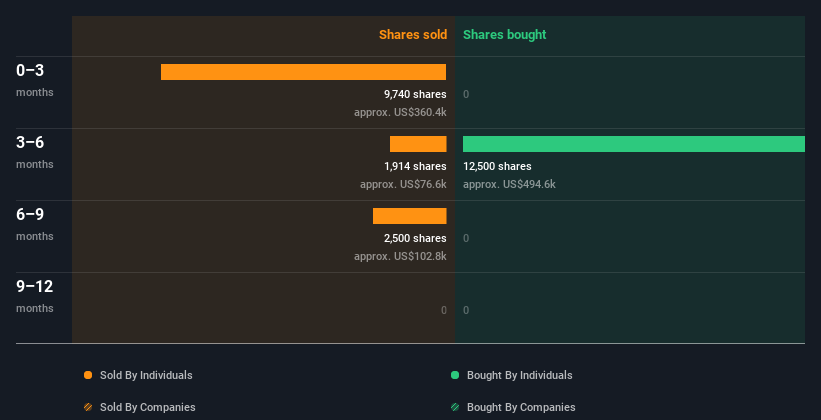Valvoline Insiders Sold US$541k Of Shares Suggesting Hesitancy
A number of Valvoline Inc. (NYSE:VVV) insiders sold their shares in the last year, which may have raised concerns among investors. Knowing whether insiders are buying is usually more helpful when evaluating insider transactions, as insider selling can have various explanations. However, shareholders should take a deeper look if several insiders are selling stock over a specific time period.
While insider transactions are not the most important thing when it comes to long-term investing, we would consider it foolish to ignore insider transactions altogether.
View our latest analysis for Valvoline
Valvoline Insider Transactions Over The Last Year
The Independent Director Charles Sonsteby made the biggest insider purchase in the last 12 months. That single transaction was for US$395k worth of shares at a price of US$39.50 each. That means that even when the share price was higher than US$35.91 (the recent price), an insider wanted to purchase shares. While their view may have changed since the purchase was made, this does at least suggest they have had confidence in the company's future. To us, it's very important to consider the price insiders pay for shares. It is generally more encouraging if they paid above the current price, as it suggests they saw value, even at higher levels.
Over the last year, we can see that insiders have bought 12.50k shares worth US$494k. But they sold 14.15k shares for US$541k. In total, Valvoline insiders sold more than they bought over the last year. You can see the insider transactions (by companies and individuals) over the last year depicted in the chart below. If you want to know exactly who sold, for how much, and when, simply click on the graph below!

I will like Valvoline better if I see some big insider buys. While we wait, check out this free list of undervalued and small cap stocks with considerable, recent, insider buying.
Valvoline Insiders Are Selling The Stock
Over the last three months, we've seen significant insider selling at Valvoline. Specifically, insiders ditched US$361k worth of shares in that time, and we didn't record any purchases whatsoever. Overall this makes us a bit cautious, but it's not the be all and end all.
Insider Ownership
I like to look at how many shares insiders own in a company, to help inform my view of how aligned they are with insiders. I reckon it's a good sign if insiders own a significant number of shares in the company. It appears that Valvoline insiders own 0.6% of the company, worth about US$30m. We've certainly seen higher levels of insider ownership elsewhere, but these holdings are enough to suggest alignment between insiders and the other shareholders.
So What Does This Data Suggest About Valvoline Insiders?
Insiders sold stock recently, but they haven't been buying. And our longer term analysis of insider transactions didn't bring confidence, either. But since Valvoline is profitable and growing, we're not too worried by this. Insider ownership isn't particularly high, so this analysis makes us cautious about the company. So we'd only buy after careful consideration. In addition to knowing about insider transactions going on, it's beneficial to identify the risks facing Valvoline. For example, Valvoline has 3 warning signs (and 1 which makes us a bit uncomfortable) we think you should know about.
But note: Valvoline may not be the best stock to buy. So take a peek at this free list of interesting companies with high ROE and low debt.
For the purposes of this article, insiders are those individuals who report their transactions to the relevant regulatory body. We currently account for open market transactions and private dispositions of direct interests only, but not derivative transactions or indirect interests.
Have feedback on this article? Concerned about the content? Get in touch with us directly. Alternatively, email editorial-team (at) simplywallst.com.
This article by Simply Wall St is general in nature. We provide commentary based on historical data and analyst forecasts only using an unbiased methodology and our articles are not intended to be financial advice. It does not constitute a recommendation to buy or sell any stock, and does not take account of your objectives, or your financial situation. We aim to bring you long-term focused analysis driven by fundamental data. Note that our analysis may not factor in the latest price-sensitive company announcements or qualitative material. Simply Wall St has no position in any stocks mentioned.
 Wall Street Journal
Wall Street Journal